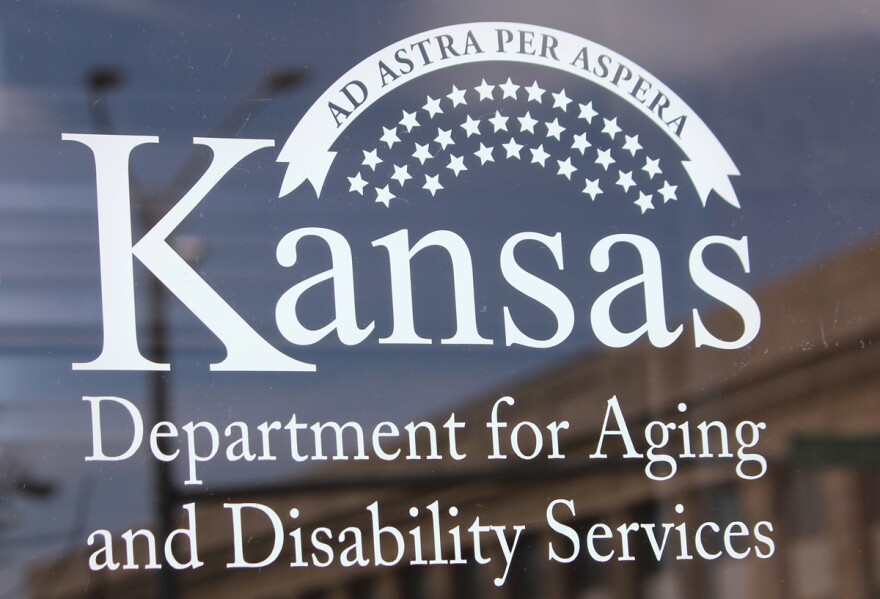TOPEKA, Kansas — Verenice Cartagena told Kansas legislators she suffered a string of brain injuries beginning at 5 years old that culminated in a stroke in her 40s, which led to a cascade of physical and mental health challenges, including aphasia and trouble communicating.
Now 52, she said the Medicaid brain injury waiver program played a role in her recovery, but that waiver and two others are at risk of becoming unavailable to those with immediate needs.
Advocates and providers warned legislators at a hearing last week in Topeka that the waivers could soon see waitlists and delays in providing necessary care because of insufficient funding after the legislative budget failed to allocate millions to maintain the three waivers.
Cartagena and four other people whose lives have been impacted by traumatic brain injuries retold stories of car accidents, injuries and lengthy recoveries. Each had help from Minds Matter, an organization that allows people with brain injuries to receive care in an independent living setting, made possible by the Medicaid brain injury waiver.
"Most of it was the support of people being there for me," Cartagena said. "Whenever I get stuck on doing things on my own, I need that support of somebody that I can reach out to for help. In the past, I didn't have anybody."
She didn't know who to contact to help fill out paperwork or help her comprehend things she struggles with because of her brain injury, she said.
Minds Matter helped her access Supplemental Security Income benefits, housing and mental health services as soon as she needed them under the brain injury waiver.
Cartagena is one of 1,218 people using a brain injury waiver, which focuses on rehabilitation and recovery. More than 850 people are using the technology assistance waiver, which helps with services for medically fragile or chronically ill people who are low-income, 21 or younger and dependent on a ventilator or medical device. And around 8,530 people use the frail elderly waiver, which assists people who are in crisis and in direct need of medical help.
Waivers override certain Medicaid rules so that people with disabilities, chronic illness or injury can receive care at home instead of in a care facility. States choose which waiver programs to implement. Kansas has seven, and nearly 30,000 Kansans use them. The state is in the process of adding an eighth.
Janet Williams, founder and CEO of Minds Matter, said people use a brain injury waiver for four years on average.
"I think the fear today is this is the first time the brain injury, the (frail elderly) and the (technology assisted) are looking at waiting lists," she told the legislative committee that oversees the state's Medicaid program, KanCare.
It's not the first time advocates have feared a waitlist. Enrollment in the brain injury waiver program has more than doubled in the past seven years because of expanded eligibility, and Williams told Kansas Reflector in 2023 that she feared a system backlog, which could lead to a waitlist. At that time, 957 people were using brain injury waivers.
The waivers for brain injuries, technology assistance and frail elderly have existed without waitlists since inception, unlike other disability waivers, such as the intellectual and developmental disability waiver, which had a waitlist of 5,300 people in 2024 before the Legislature capped it at 4,800. Currently, 4,791 people are on its waiting list.
Sean Gatewood, co-administrator of the KanCare Advocates Network, said the risk of waitlists stems from an aging population and lack of funding from the most recent legislative session. The nature of the session was different in pace and process, he said. The Legislature crafted its budget instead of adhering to the customary process of revising a budget proposed by the governor.
The Kansas Department for Aging and Disability Services requested that the Legislature approve funding and additional slots for the waivers.
"That funding did not make it through the process, and right now KDADS is preparing to have a waitlist if that is to come about," Gatewood said.

In this fiscal year, which began July 1, the frail elderly waiver is down $11.8 million in state funds, and the brain injury waiver is down $2.8 million. Next fiscal year, the frail elderly waiver is expected to be $28.7 million in the red, with the brain injury waiver $6.6 million and the technology assistance waiver $3 million short.
Michele Heydon, the commissioner for long-term services and supports for KDADS, said state agencies and KanCare providers have begun meetings to brainstorm strategies to prevent or lessen future waitlists for the three waivers.
Under a new law, state agencies cannot make changes to federal programs without the approval of the Legislative Coordinating Council, which consists of legislative leadership. Heydon noted in her presentation that she intends to ask for approval from the council to submit requests to the federal government to create three waitlists for the waivers.
Advocates asked the committee members to consider supporting budget increases for the waiver programs, and some appeared receptive to the request.
Copyright 2025 KCUR 89.3







